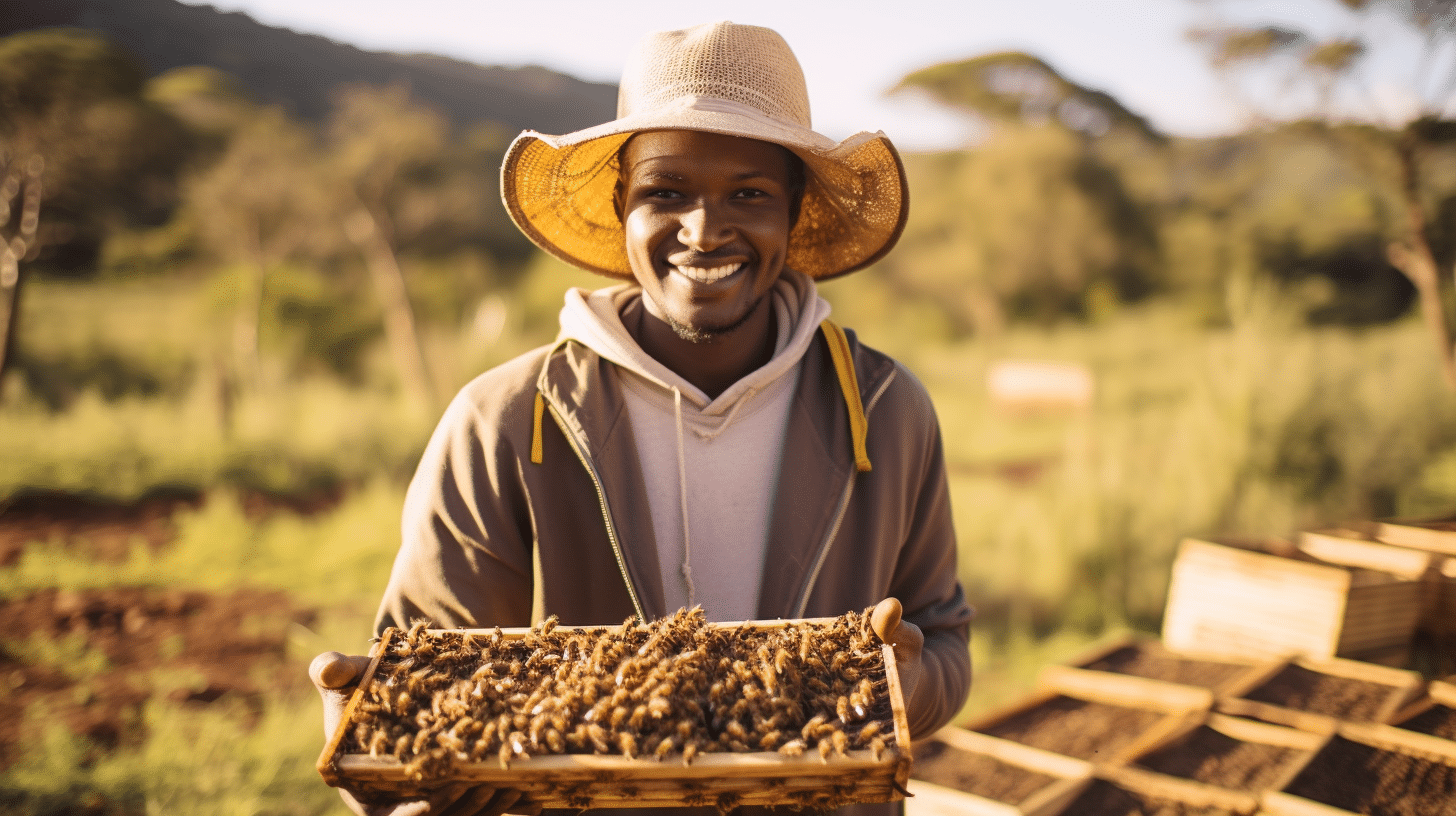Bee farming is the keeping of bees for productive purposes. It is one of the cheapest types of farming that a person can engage in especially here in Kenya. Since Kenya is a country that is approximately 80 percent arid and semi-arid, it is a favorable place for bee farming because bee farming is a type of enterprise that does not require fertile land.
The arid and semi-arid areas in Kenya such as Baringo and Kitui County have proved to be the best counties in bee production because most of the honey that is being sold in Kenyan market is coming from those two counties.
The advantages of bee farming includes:
- It does not require small piece of land.
- It requires small amount of money to start.
- It requires minimal labour force.
- It has more than ten income generating products (some of them include pollen, propolis, royal jelly, bee colonies, bee venom, and bee brood).
- It is believed to possess some medicinal value.
- Bees are flowers pollinators hence assist in fertilization of plants.
The first thing a person who wants to start bee keeping should know is that he/she should be able to put into consideration the bee-human relationship because bee are very dangerous insects that sting and to some extend can cause death and therefore, a farmer should know how to deal with it. The total amount a person requires to set up bee farming is approximately Kshs.10, 000 (from purchasing of beehive to that of harvesting materials) together with the equipments used for harvesting honey.Setting up a beehive requires Kshs.5000 for example the Langstroth type of bee hive but a person may decide to use locally available materials to construct one from home.
The harvesting materials cost a total of Kshs.5, 000. These materials include gumboots, gloves, bee suits and smokers. One you have finished constructing or buying a beehive, you can now set the beehive to either the farm or bush. If you do not have a farm, you can negotiate with your neighbor or a friend so that he/she can allow you to use their farm because bees will assist in fertilization of plants and vegetables. Once the beehive is set, it can be left for a period of six month or one year because it does not need close supervision like other type of farming. You can also attract the bees to the beehive by putting the juice or sugary solution inside the beehive.
Harvesting of honey from bees is normally done after one year after the beehive has been set. The second harvesting can then be done about 8 months after the first one. After the second harvesting of beehive (honey), the subsequent harvests can be done after every four month. After harvesting honey, you can now sell it to the market at about Kshs.150 per kilo of honey.



0 comments